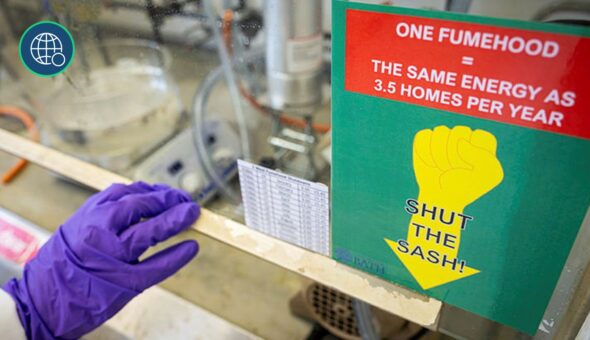Recently I have found myself reflecting on peer review. Isn't it interesting that for something that is so key to the integrity and quality of research it is never actually formally taught?
Shortly after my arrival at Bath, Chloe Turner (previously a Research Development Manager in RIS, now a Programme Grant Manager in Chemical E ngineering) reached out with an offer to share her insights on peer review. Together with Ana Amelia Alvarez Serra (Research Development Manager in RIS) they have shared their reflections on peer review below.
ngineering) reached out with an offer to share her insights on peer review. Together with Ana Amelia Alvarez Serra (Research Development Manager in RIS) they have shared their reflections on peer review below.
We receivedd a letter from Professor Dame Lynn Gladden, Executive Chair of the EPSRC, who wrote to Bath colleagues* thanking them for their time and dedication to the peer-review system - and more so during a pandemic when there have been very large demands.
I would also like to extend my gratitude and recognise the collegiality of your contribution and the value that your works brings to the University and the research system as a whole.
How do you feel about peer review? Do you have views or comments on how we can better support our academics through our internal processes? If so, leave a comment below or drop me a line.
Best wishes, Sarah
Peer review is central to the academic endeavour. It is long been established as the way (though imperfect) to prioritise ideas for funding. It can also help with developing ideas and maturing them to a higher quality.
But it is not always easy as it requires dedicated time, often at short notice, which can be difficult to carve out given our busy schedules.
People's experience of peer reviewing is that it can bring rewards too - both to the university community and to the individual. To have the opportunity to read someone else's research idea can help expand our understanding of the research landscape. If you get to review a truly novel and brilliantly designed proposal it will be a real pleasure. But even if the proposal doesn’t quite bring this level of enjoyment, seeing how effective the Investigators are at communicating through the application offers real insight into the grant writing process. If you have the opportunity to take part in a prioritisation panel or committee meeting, comparing many proposals side by side you will gain an insight into what works and what clearly doesn’t in the craft of grant writing.
Many of you will be aware of the UK Government’s current focus on tackling research bureaucracy and may have read the interim Tickell report. The value of peer review is clear: “Peer review is the bedrock of the excellence of UK science”. Within the report, the role of peer review in Universities is examined. Complexities around the burden created are acknowledged, but opportunity is also identified. Effective internal peer review can reduce the frustrations of all of us in producing large numbers of failed applications and associated low success rates.
As the Tickell review continues, alongside the UKRI review of peer review committed to in the Government’s , R&D 'People and Culture Strategy' it is timely to consider the role that we at Bath can play in the system. For example, the removal or softening of caps by funders would be welcomed but will require partnership from Universities.
Our goal at Bath, to increase research income while tackling low success rates compliments national aspirations to reduce the burden of external peer review of applications that will never make it above the budgetary cut off. Developing our internal multi-stage Peer Review - from grant pitching and outlines to final draft polishing - will have an impact on the wider system as well as more locally at Bath.
Recent pitching sessions held in the Faculties of Engineering & Design and of Science to support the EPSRC’s call for New Horizons applications show how we are already coming together as a community to support each other's ideas internally. Taking part in external peer review, as our colleagues(*) recognised by EPSRC have done, will drive the quality and excellence of internal peer review at the University, improving our bids and shifting the dial on our success rates.
We encourage you to keep contributing to internal peer review, from a short conversation about an idea, to being part of a pitching panel; from commenting on a draft to being a mock interviewer. Consider also developing your skills by taking part in external peer review, for example by applying to the be a reviewer for EPSRC, Royal Society or becoming a member or a NHS REC. Not only you will develop inside knowledge, be expose to different approaches to grant writing and evaluation but also you will be contributing to a more diverse and representative peer review that is bound to enrich the field.
Chloe and Ana
(*) Below are the people who have been recognised by the EPSRC for their outstanding contribution to peer review during the academic year 19/20. Again, an extended thank you for your hard work and advocacy for Peer Review. I have no doubt you will help highlight its value and the insight to research it gives you.
Professor Tim Mays, Chemical Engineering
Professor Andrew Burrows, Chemistry
Dr Randolf Kohn, Chemistry
Professor Frank Marken, Chemistry
Professor Laurence Peter, Chemistry
Professor Paul Robert Raithby, Chemistry
Professor Charles Wilson, Chemistry
Dr Pedro Estrela, Electronic and Electrical Engineering
Dr Kirill Cherednichenko, Mathematical Sciences
Professor Jonathan Dawes, Mathematical Sciences
Professor Andreas Kyprianou, Mathematical Sciences
Dr Daniel Loughran, Mathematical Sciences
Dr Matthew Roberts, Mathematical Sciences
Professor Gregory Sankaran, Mathematical Sciences
Dr Tony Shardlow, Mathematical Sciences
Dr Ian Eggleston, Pharmacy and Pharmacology
Dr Peter Mosley, Physics
Professor Daniel Wolverson, Physics
Dr Anita Zeidler, Physics



